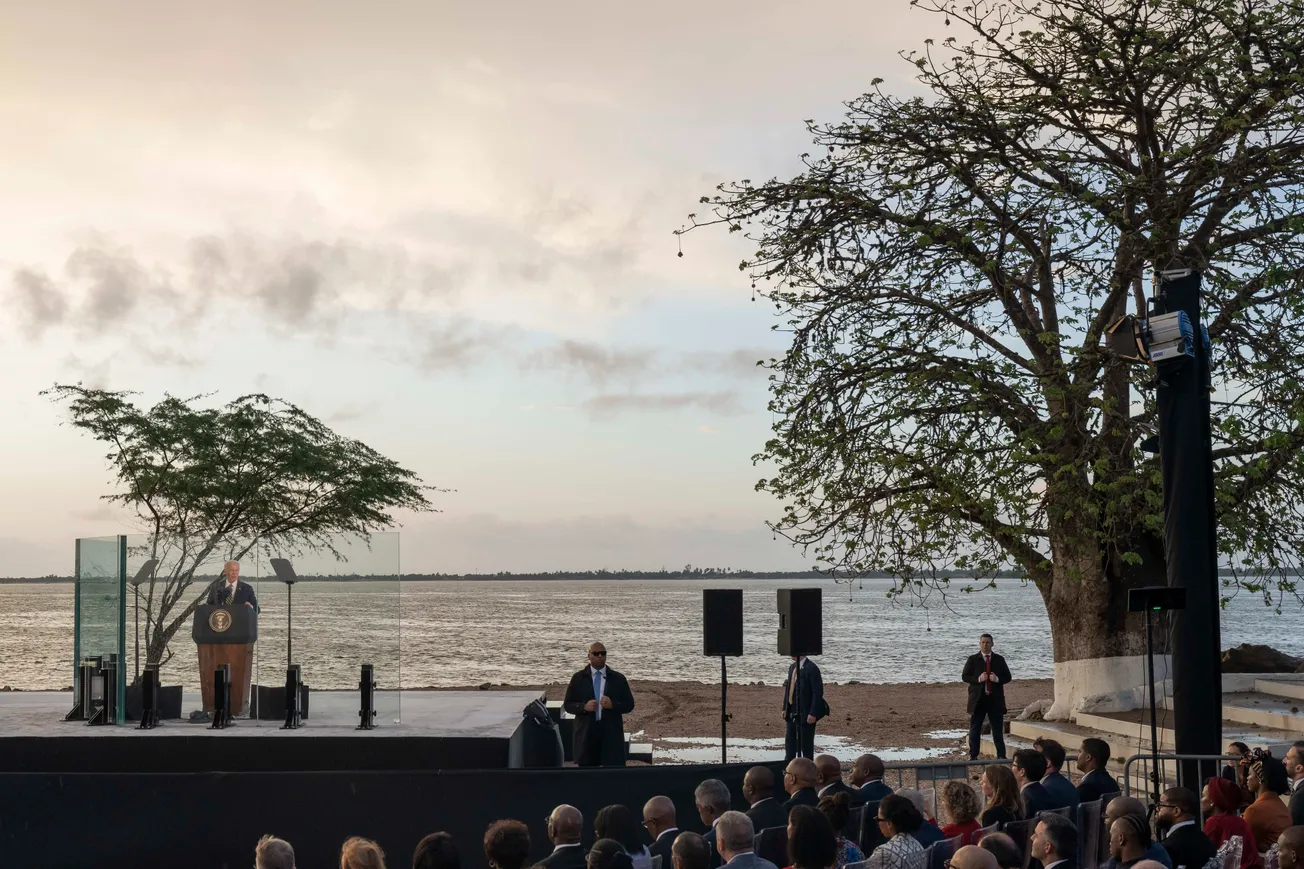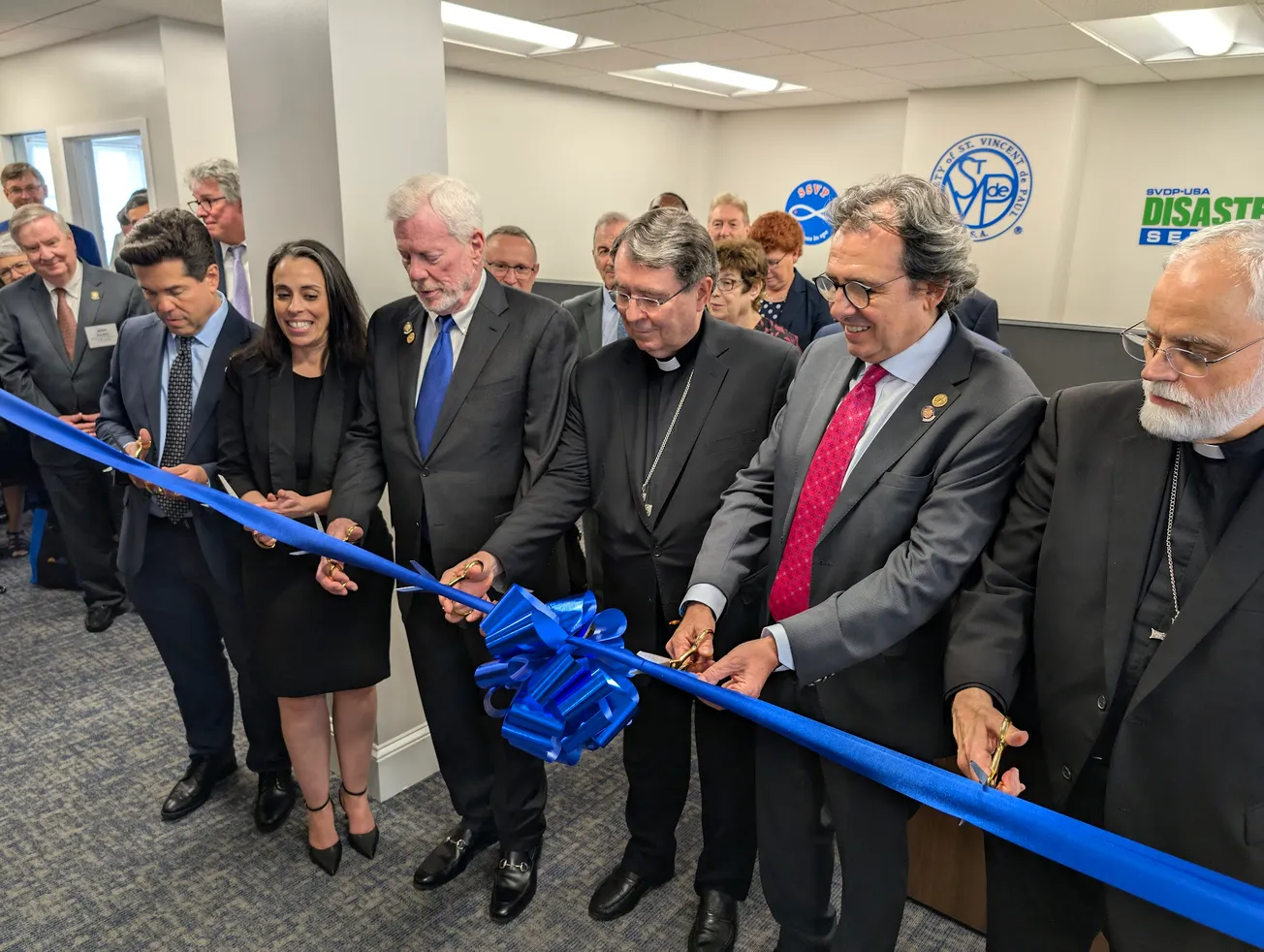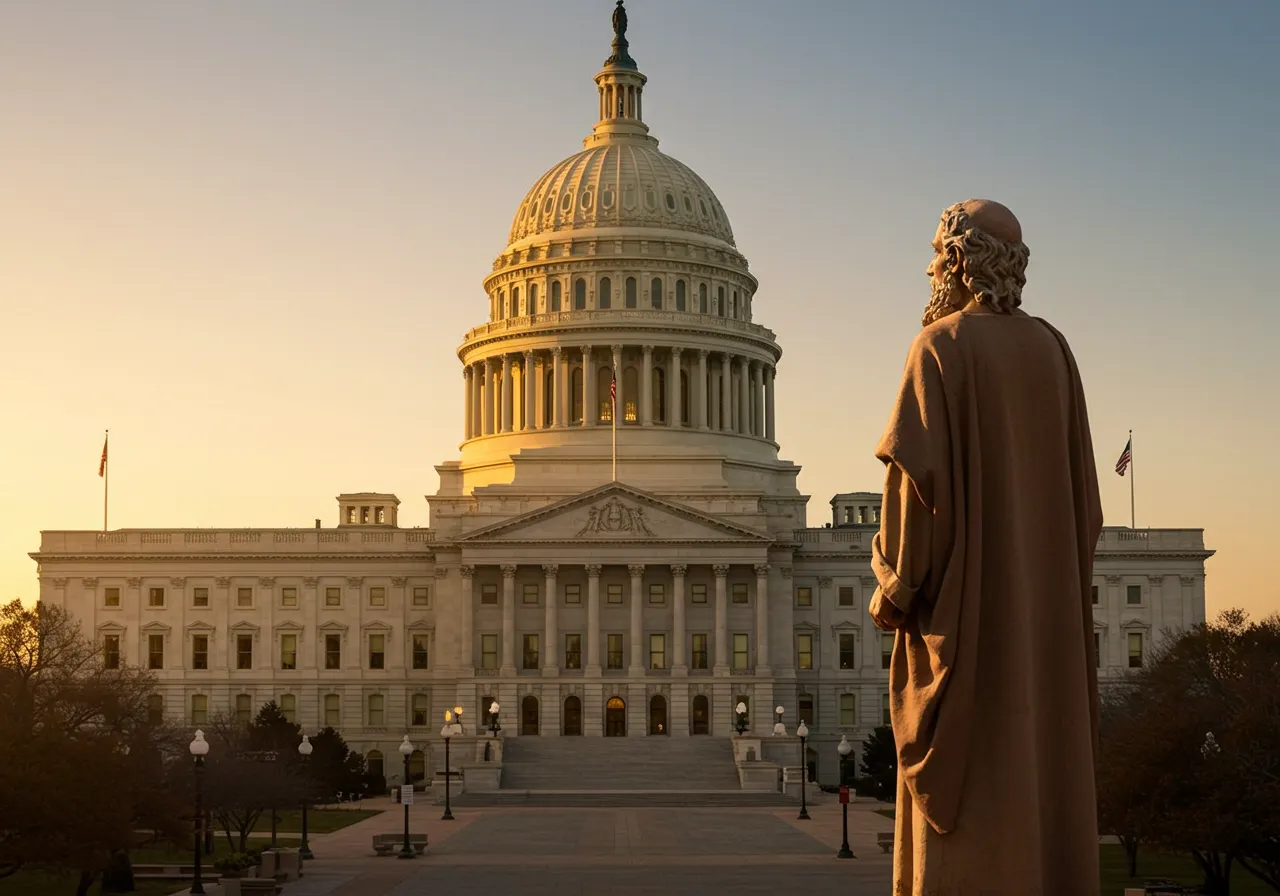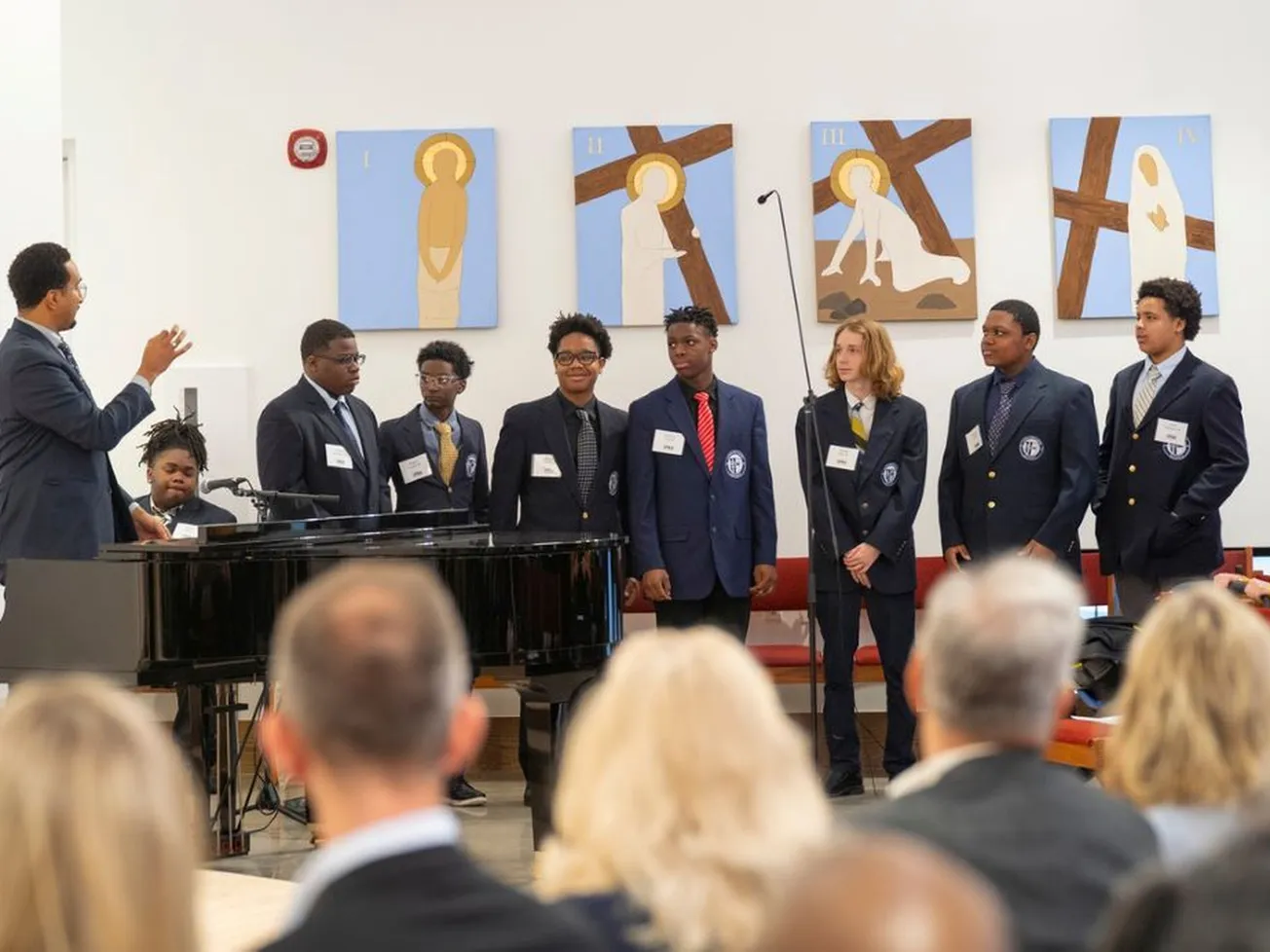On a visit to the African nation of Angola this week, President Joe Biden drew attention to the long history of slavery, America's “still unfinished reckoning with racial injustice,” and the need for continued vigilance to protect continental interests. It was the first visit by a U.S. president to the West African nation.
The outgoing president arrived in the West African nation on Monday, ahead of a scheduled tour of U.S.-backed railway projects meant to counter the growing influence of China and its longstanding Belt and Road Initiative.
Biden spoke Tuesday at a rain-soaked riverbank in Belas, Luanda Province, near the site of the country’s National Slavery Museum. In his remarks, he highlighted the lesser-known history of the pre-United States, where the Jamestown settlement received enslaved Angolans early on in the British colonial era.
“Young women, young men born free in the highlands of Angola, only to be captured, bound, and forced on a ‘death march’ along this very coast to this spot by slave traders in the year 1619,” said Biden, taking care also to note Catholic connections for two 17th-century Angolans.
“In the building next to us, they were baptized into a foreign faith against their will, their names changed against their will to Anthony and Isabella. Then they were condemned to a slave ship bound for the Middle Passage.”
In reality, it is unclear whether the young African couple was actually forcibly converted; many Angolans, and subjects of the neighboring Kongo Kingdom, were willing Catholic converts evangelized by Portuguese missionaries.
Even so, it is true that, at the very least, hundreds of Angolans—regardless of religion—were trafficked to Virginia to serve the colonists. Overall, Luanda served as one of the most active slave-trading posts in all of Africa.
Notwithstanding that Africans were present more than a century prior within what would become the United States, the enslaved people of Jamestown are often considered the first African Americans, as claimed by Biden in his speech.
“It was the beginning of slavery in the United States. Cruel. Brutal. Dehumanizing. Our nation’s original sin—one that haunted America and casts a long shadow ever since,” he said.
“Historians believe people of Angola accounted for a significant number of all enslaved people shipped to America. Today, millions of African Americans have roots in Angola.”
President Biden’s trip marks the first visit ever by a sitting U.S. President to the Republic of Angola, and the first visit of a U.S. President to sub-Saharan Africa since 2015.
— The White House (@WhiteHouse) December 4, 2024
Our Administration is committed to deepening the U.S.-Angola relationship. pic.twitter.com/fLySozfLa8
Descendants of Anthony and Isabella were also present for the event in Angola, making for a full-circle moment in the motherland. Their family, the Tuckers, still bear the surname of their ancestor William Tucker, the son of the Angolan husband and wife. According to Biden, one woman present for his speech—Wanda Tucker of Hampton, Virginia—previously visited Angola to delve into her family history.
President João Lourenço of Angola, whose nation will celebrate 50 years of independence from Portugal next year, visited the United States last fall, including a stop at the National Museum of African American History and Culture.
He spoke this week of the changing nature of U.S.-Angolan state interactions, far removed from the latter’s 17-year socialist republic and its tensions with successive American administrations.
“This [not only puts] an end to the past of our relations whereby within the Cold War we had never been aligned, but also it marks an important turning point in our relations,” Lourenço said before a meeting with Biden, also on Tuesday.
Biden’s immediate plans for U.S. investment in Angola include $3 billion for the Lobito Trans-Africa Corridor, a G7 initiative that will streamline infrastructure developments for developing countries between Central Africa’s Copperbelt region and vital coastal ports.
The project, which Biden says will also provide clean energy and increased food security for millions, is expected to receive continued support from incoming President Donald Trump, who has been clear in his intentions to challenge Chinese hegemony on the African continent.
In his Belas speech, Biden noted that strengthened American partnership with Angola represents the latest step in healing the wounds of slavery and honoring the stateside Black diaspora.
“I’ve often said America is the only nation in the world founded on an idea… that all men and women are created equal and deserve to be treated equally throughout their lives,” he said.
“It’s abundantly clear today we have not lived up to that idea, but we’ve never fully walked away from it either—and that’s due in no small part to the determination and dreams of African Americans, including Angolan Americans.”
Nate Tinner-Williams is co-founder and editor of Black Catholic Messenger.
Want to donate to BCM? You have options.
a.) Support our #iGiveCatholic campaign.









